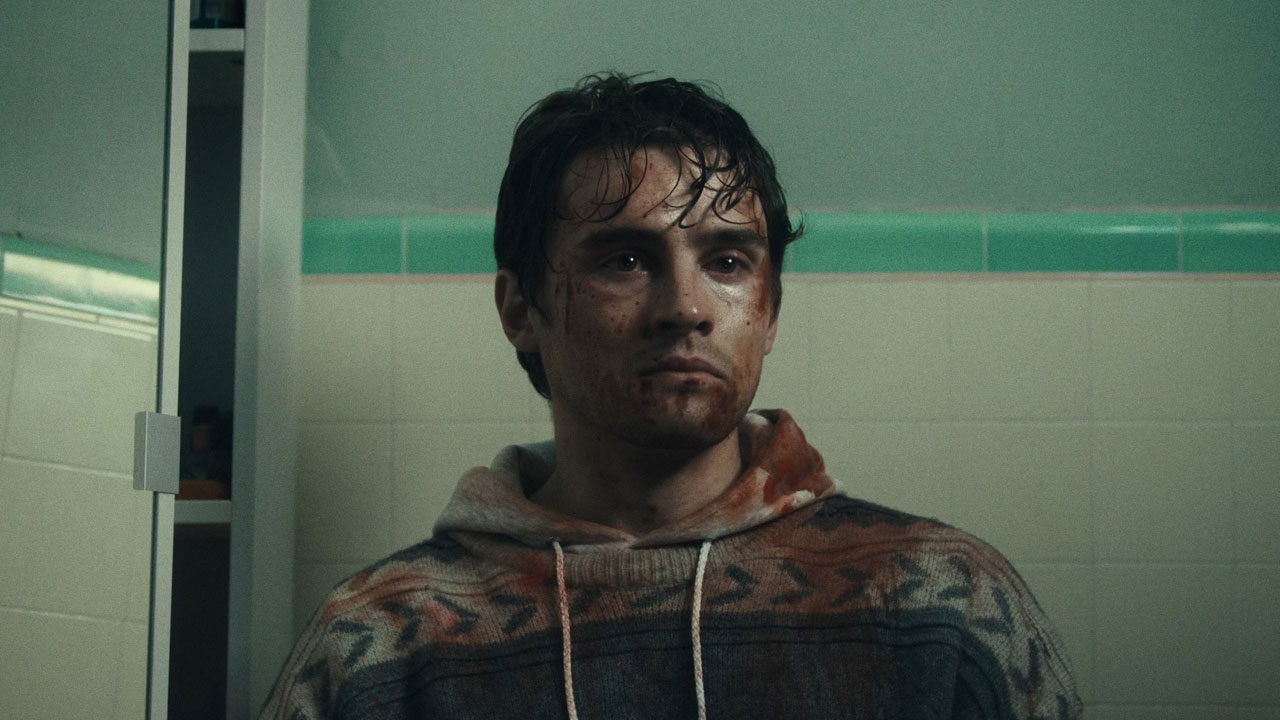I am a sucker for a good monkey’s paw horror story, so when I saw the synopsis for Obsession before TIFF 2025, I knew I had to give the movie a shot. Sitting down and diving in, I was treated to a haunting, twisted and at times humorous entry into the horror genre, one that sheds light on unacquainted love and how it is not always so innocent.
The film transforms an ordinary story of romantic longing into an unsettling journey through the consequences of desire, autonomy and the boundaries of consent. Anchored by standout performances from Michael Johnston and Inde Navarrette, Obsession wastes no time in presenting a relentless, tightly wound narrative that is as disturbing as it is compelling.
Obsession follows Bear, a socially awkward music shop employee whose deep-seated affection for his co-worker Nikki remains unspoken to anyone beyond his closest friends. Grieving the loss of his cat and desperate for connection, Bear turns to a novelty shop gadget called One Wish Willow, said to grant a single wish.
In a moment of weakness, he wishes for Nikki’s undying love—something that never goes well. What follows is a shift from a quirky story about connection into something much darker and more disturbing. Nikki, once spirited and independent, suddenly becomes an obsessive, almost inhuman pursuer whose behaviour grows increasingly erratic and violent.

It is hard to believe this is Curry Barker’s directorial debut. Obsession feels well-honed, delivering a gut punch as soon as the story gets started in earnest. Barker’s direction shines brightest in the tense, shadow-soaked sequences, where atmospheric lighting and precise camerawork evoke unease and heighten the horror. The film’s shifts between moments of levity and sudden dread are a master stroke, forcing the audience to feel the tone and horror of what is unfolding in unexpected ways.
Inde Navarrette’s portrayal of Nikki is nothing short of a masterstroke. Her transformation from friend to something otherworldly is so convincing that it feels as though a horror icon is being crafted in real time. There is a duality to her performance, with fleeting glimpses of Nikki’s true self emerging amid the feverish devotion forced upon her by Bear’s supernatural wish. It is horrifying on many levels and makes everything that follows all the more insidious. Barker never lets the audience forget that Nikki’s fate is not a consequence of her own choices, heightening the tragedy and terror as her identity is subsumed by something both alien and menacing.
“Obsession feels well-honed, delivering a gut punch as soon as the story gets started in earnest.”
Michael Johnston delivers a quietly tragic turn as Bear, embodying the anxieties and guilt of a man who is both victim and predator. The film’s framing, focused tightly on Bear’s perspective, explores the darker edges of romantic idealization, showing how a so-called “nice guy” narrative can become sinister when autonomy is stripped away in favour of the illusion of reciprocation.
Barker subverts the familiar monkey’s paw concept, lacing the plot with off-kilter humour and shocking violence that provoke introspection without offering easy absolution. When the credits roll, there is no question: while Bear is in some ways a victim of circumstance, he is never let off the hook, and remains culpable for much of the horror unleashed on the people he claims to love.
That is the true power of Obsession: its willingness to interrogate its own premise, holding both its protagonist and the audience accountable for the consequences of unchecked desire, even when supernatural forces are involved. The violence is never used for cheap thrills, but as a means of exposing the existential dread that underlies wishful thinking and emotional escapism, the same impulses that so often fuel genre storytelling. Obsession is as much a film of ideas as it is a horror tale, exploring how far desire can twist into destruction. Even the violence feels raw, brutal and uncompromising.
Few films at this year’s TIFF left me reflecting on possibility and horror as powerfully as Obsession. The film exists as both a high-energy plunge into terror and a thoughtful meditation on love’s darkest turns, showing how unchecked desire can become something entirely twisted. By grounding each terrifying development in character and emotional honesty, Barker ensures the audience never escapes the central question: what does it mean to strip away another’s will for one’s own happiness? In answering, Obsession delivers one of TIFF 2025’s purest and most memorable horrors, a film that lingers long after the final fade to black.






